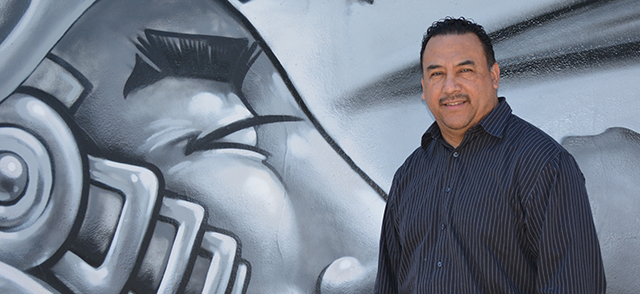“Get your stuff. We’re leaving.”
With those words, spoken by his decade-older brother, Leo Sosa left Guatemala as a frightened 15-year-old. It was the middle of the night in the spring of 1985, with Sosa’s native Guatemala in the midst of warfare.
Sosa’s father, a general in the army, had almost been assassinated twice and was compelled to take his wife and seek sanctuary in the U.S. That meant leaving everything behind, from a comfortable home and a business … to their six children. It was time for the family to be reunited in San Francisco.
“My dad owned a successful martial arts studio in Guatemala City, with more than 300 students learning Karate-DO, and he had more Dojo’s in other departments such as Quetzaltenango, in the southwest of the country. I earned my black belt by 14, but my real fight was ahead of me,” explains Sosa.
While Sosa entered the county legally–unlike so many others seeking refuge–the teenager nevertheless found himself in a foreign land, where he understood neither the culture nor the language. He attended Newcomer High School, no longer in existence, where he took ESL classes. His teacher advised Sosa to read a newspaper every week, as a way to not only learn the language, but to learn the culture of his adopted home.
The young man read more than news stories; from bus ads to grocery store signs, Sosa took it all in, in an attempt to immerse himself in a new land.
The road was not easy. Troubled by the pressure of the system and not being able to easily adjust to the culture, Sosa ran away for a year. When he came home to ask for forgiveness, his parents told him that when he had left, the door had been closed.
Left on his own, but with a well-laid foundation of values and disciplined from his parents, the determined young man worked to better his life—whatever it took. That even meant working full time, after high school hours, in the harsh environment of a plastics factory, an experience showcased by a two-inch scar on Sosa’s right arm, from a burn incident incurred when he had no medical insurance.
The young man pushed forward, eventually turning a newfound love of all things tech into a career connecting others to the digital world. This translates to Sosa’s current work at the Mission Economic Development Agency (MEDA) since he joined the organization three years ago.
There is a strong empathy that is immediately apparent when Sosa interacts with his Young Adult program participants, who range in age from 17 to 24. Sosa has been spearheading the Mission Techies, whereby young adults, from underserved communities, are put on the path to a career in San Francisco’s burgeoning tech sector.
Sosa knows all too well that success in this country means having determination. He also knows the importance of adapting, something he stresses to his workshop participants.
“I see these clients, who are mainly immigrants, and I see myself. If they can’t speak English, I tell them to start by reading a newspaper,” sums up Sosa, as he works at paying it forward so that others can make it, just as he has done.







Leave a reply